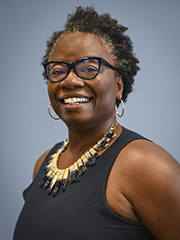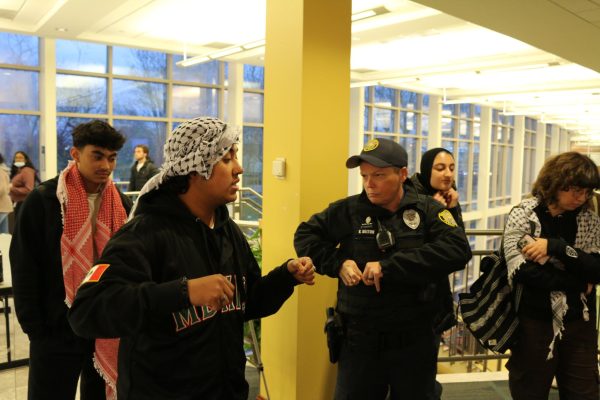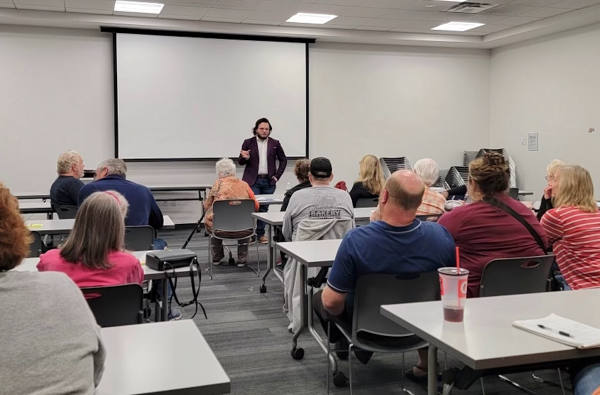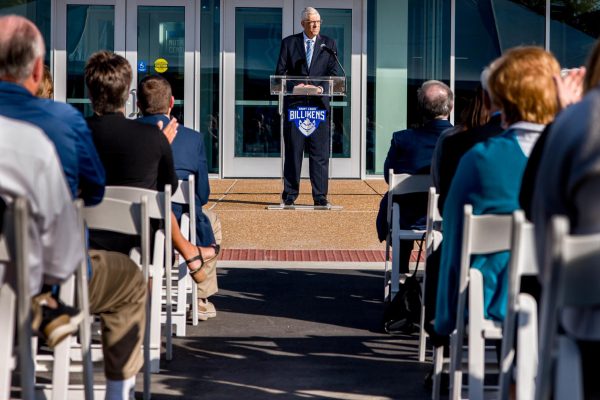Mona Hicks Moving to Stanford

Photo Courtesy of Saint Louis University
Last week, SLU students received the bittersweet news that Mona Hicks, Ph.D., SLU’s Associate Vice President for Student Development and Dean of Students would be leaving SLU to serve as Stanford’s Senior Associate Vice Provost and Dean of Students. As Dean of Students, Hicks has played a role in shaping many campus programs and has been a prominent face of student life and support on campus. Hicks describes her role as Dean of Students as a “calling” and said that being in her role means “always carrying students in your heart and mind.” Hicks has been in her position at SLU for almost 8 years, and she told the University News about her time at SLU and what might be in store for her at Stanford.
Hicks said the beginning of her time at SLU was a special experience for her. During her multiple-day interview, which she described as rigorous, she was able to sit down and converse with student leaders on campus. She said that the Saint Louis University student body were what convinced her that this was a place she wanted to work.
During her time at SLU, Hicks has been a key figure in creating, developing and fostering programs designed to support the student body. It hasn’t always been an easy task, and according to Hicks, her biggest challenge at SLU has been “building and constructing a sustainable Dean of Students Office.”
“It didn’t look like this when I got here,” said Hicks. “We still have a long way to go, but I’m very proud of this [the office].”
Hicks said she was also especially proud of the work she did on developing the Undergraduate Learning Outcomes.
“I’m very proud of having the opportunity to discuss just what we want students to be able to gain from Saint Louis University,” said Hicks. “There are incredible things happening. SLU students are doing incredible things outside of the classroom. We were learning how to integrate those things with what was happening inside the classroom as well.”
Hicks said the programs and initiatives she was most personally proud of were programs that worked to care for and support students who were often marginalized or isolated on campus, such as the Veteran’s Student Commons and the Billiken Bounty Food Pantry
“I’m proud of the way we care for students, especially students who are pushed to the margins,” said Hicks. “Like Billiken Bounty, which I hope to be giving to for the rest of my life, can be a model for other things like Billiken 2 Billiken. It’s all about how you connect students to one another.”
In her new role at Stanford, Hicks will be continuing her work in supporting students. She detailed how the job she will be undertaking at Stanford is unique because around 95 percent of undergraduate students live on campus.
“It’s such an incredible opportunity with this residential college model to make sure everyone finds their way,” said Hicks. “When almost everyone lives on campus, we want the community where they live to be a positive experience for them. I am excited to be part of that team and to continue to be everyone’s big sister, mom, auntie along the way, just like I have here [at SLU].”
Hicks said that planning her departure from SLU has been an emotional experience.
“It’s bittersweet. There probably isn’t a day that goes by that someone isn’t crying or I’m crying,” said Hicks.
She described her job as a calling and said that it was the students who taught her how to do her work, and who held her accountable. Hicks said that lessons on accountability and process were some of the most important things she will be taking with her from SLU to Stanford.
“I’ve learned that often the process is more important than the outcome,” said Hicks. “I have tried to apply that to every aspect of my life. I always want to be discerning about things. I don’t want to just give an answer, I want to give the best answer.”
Hicks said that if she could leave a parting message to SLU students, it would be that “Good Health is Wealth.” She said that it is incredibly important to take care of one’s mental health, and to work to be free and happy, so that everyone can find their calling.
“You’ve have to grind and work, but if there’s no joy, what’s the point?” said Hicks. “Your own spirit is telling what’s happening. You can ignore it or act on it.”
Your donation will support the student journalists of Saint Louis University. Your contribution will help us cover our annual website hosting costs.








